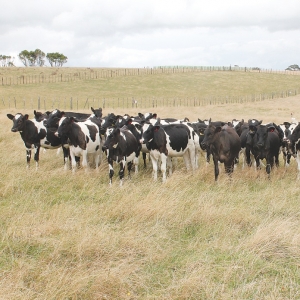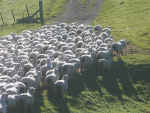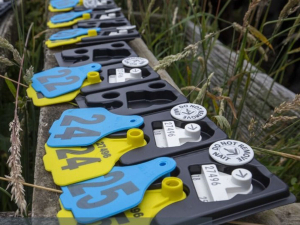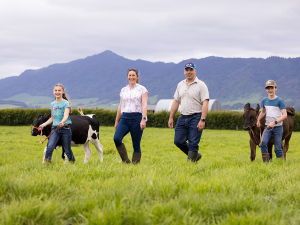Dargaville dairy farmer Bob Franklin is happy to fork out money for top heifer grazing if he gets a product worth $20,000 more over its lifetime.
He has been dairy farming for four years after switching from sheep and beef and is still building his dairy herd, he told the field day at the Northland heifer grazing focus farm of John and Geraldine Taylor.
Last year Franklin sent undersized heifers to the Taylor’s farm which did an excellent job of them, he says. R2 heifers observed at the February 12 field day were the second lot sent to the Taylor farm. The mob averages 430kg -- about 80kg above target -- and all were pregnant except two needing retesting.
Franklin says he put these heifers somewhere else initially but then switched them to the Taylors who are now getting the same great results for him as last year.
Grazier John Taylor bought the 139ha farm in 1967 and ran a breeding ewe operation for 15 years. They then diversified into cattle and started with 50 head of dairy grazers. They now run 190 head with 30 plus weaners and 157 R2 heifers; sheep numbers are 700 ewes.
They do some private grazing but now mostly work through the New Zealand Grazing Company.
Calves are oral drenched and the heifers are getting Cydectin every eight weeks based on dung samples.
Winter is a critical period, particularly in Northland. The heifers are run in their ownership mobs with their own rotation. Taylor allocates 3 heifers/ha for yearling heifers (750-800kgLW/ha).
Heifers are shifted at least daily through winter – twice a day in wet weather with 50 heifers allocated 0.4ha a day on a 40 day rotation. Through autumn they are shifted every second day. The farm relies on balage – it is not geared up to feed PKE – made in January because gear and labour is available.
“This land is pretty responsive…. The worst thing is the wind; that might be helping us with lower spore counts.
“Calves are on a two day shift… To get growth rate you’ve got to move them before they need to be moved and you just keep going. September is our worst month because the lambs are starting to eat – the land is so cold its takes a while to come on.”
Heifer grazing is sensitive to feed deficits: heifers need to gow at 0.6-0.7kgLW/head/day to reach their 22 months liveweight. Any periods lower than this creates risks of missing liveweight targets.
Some pros of working via New Zealand Grazing Company, rather than private arrangements, include dealing with one person, secure paying, regular weighing, and a dung and FE testing regime, calves must be 100kg at trucking to the grazier, and extra payments for winter, drought and animal health costs.
However Taylor thought the $500/head plus grazing feeds refund penalty for death was steep when it was not the grazier’s fault.


















